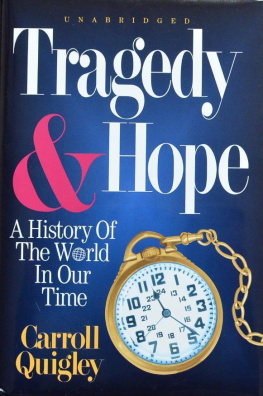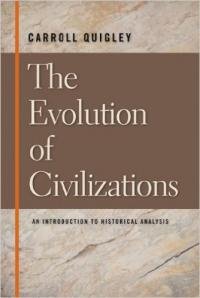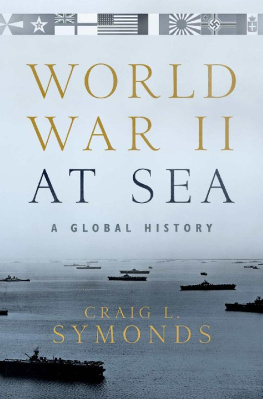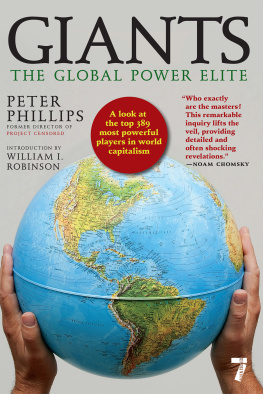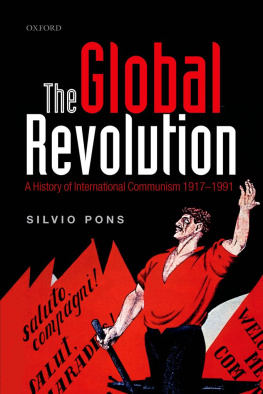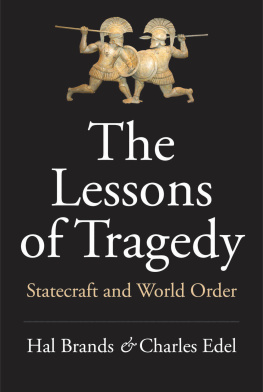Table of Contents
The powers of financial capitalism had another far-reaching aim, nothing less than to create a world system of financial control in private hands able to dominate the political system of each country and the economy of the world as a whole. This system was to be controlled in a feudalistic fashion by the central banks of the world acting in concert, by secret agreements arrived at in frequent meetings and conferences. The apex of the systems was to be the Bank for International Settlements in Basel, Switzerland, a private bank owned and controlled by the worlds central banks which were themselves private corporations. Each central bank...sought to dominate its government by its ability to control Treasury loans, to manipulate foreign exchanges, to influence the level of economic activity in the country, and to influence co-operative politicians by subsequent economic rewards in the business world.
Carroll Quigley
BY CARROLL QUIGLEY
The Evolution of Civilizations
Tragedy and Hope: A History of the World in Our Time
The Anglo-American Establishment
HOW TO ORDER
Single copies may be ordered from your local book source. Quantity discounts are also available to bookstores, libraries, various
organizations and institutions by contacting
GSG & Associates,
P.O. Box 590, San Pedro, CA 90733,
Phone (310)548-3455/Fax (310)548-5802.
On your letterhead, include information concerning the intended use and the number of books you wish to purchase.
TRAGEDY
AND
HOPE
A H istory of
THE WORLD
in O ur T ime
Carroll Quigley
First published in 1966 by
THE MACMILLAN COMPANY, NEW YORK
COLLIER-MACMILLAN LIMITED, LONDON
Copyright Carroll Quigley 1966
All rights reserved. No part of this book
may be reproduced or utilized in any form
or by any means, electronic or mechanical,
including photocopying, recording or by any
information storage and retrieval system,
without permission in writing from the Publisher.
First Printing
The Macmillan Company, New York
Collier-Macmillan Canada, Ltd., Toronto, Ontario
Library of Congress catalog card number: 65-13589
Printed in the United States of America
Second Printing 1974
By Wm. Morrison, Los Angeles, Calif.
With Permission of Carroll Quigley
Third Printing 1998
With Permission of William Morrison
By George S. Gabric
San Pedro, Calif. 90733
ISBN# 0-945001-10-X
Copyright Pending
G S G & ASSOCIATES
Post Office Box 590
San Pedro, California 90733
USA
gsgbooks@earthlink.net
ISBN #0-945001-10-X
TO
ALL WHO CARE
AND SEEK TO HELP
Preface
T he expression contemporary history is probably self-contradictory, because what is contemporary is not history, and what is history is not contemporary. Sensible historians usually refrain from writing accounts of very recent events because they realize that the source materials for such events, especially the indispensable official documents, are not available and that, even with the documentation which is available, it is very difficult for anyone to obtain the necessary perspective on the events of ones own mature life. But I must clearly not be a sensible or, at least, an ordinary historian, for, having covered, in an earlier book, the whole of human history in a mere 271 pages, I now use more than 1300 pages for the events of a single lifetime. There is a connection here. It will be evident to any attentive reader that I have devoted long years of study and much original research, even where adequate documentation is not available, but it should be equally evident that whatever value this present work has rests on its broad perspective. I have tried to remedy deficiencies of evidence by perspective, not only by projecting the patterns of past history into the present and the future but also by trying to place the events of the present in their total context by examining all the varied aspects of these events, not merely the political and economic, as is so frequently done, but by my efforts to bring into the picture the military, technological, social, and intellectual elements as well.
The result of all this, I hope, is an interpretation of the present as well as the immediate past and the near future, which is free from the accepted clichs, slogans, and self-justifications which mar so much of contemporary history. Much of my adult life has been devoted to training undergraduates in techniques of historical analysis which will help them to free their understanding of history from the accepted categories and cognitive classifications of the society in which we live, since these, however necessary they may be for our processes of thought and for the concepts and symbols needed for us to communicate about reality, nevertheless do often serve as barriers which shield us from recognition of the underlying realities themselves. The present work is the result of such an attempt to look at the real situations which lie beneath the conceptual and verbal symbols. I feel that it does provide, as a consequence of this effort, a fresher, somewhat different, and (I hope) more satisfying explanation of how we arrived at the situation in which we now find ourselves.
More than twenty years have gone into the writing of this work. Although most of it is based on the usual accounts of these events, some portions are based on fairly intensive personal research (including research among manuscript materials). These portions include the following: the nature and techniques of financial capitalism, the economic structure of France under the Third Republic, the social history of the United States, and the membership and activities of the English Establishment. On other subjects, my reading has been as wide as I could make it, and I have tried consistently to view all subjects from as wide and as varied points of view as I am capable. Although I regard myself, for purposes of classification, as a historian, I did a great deal of study in political science at Harvard, have persisted in the private study of modern psychological theory for more than thirty years, and have been a member of the American Anthropological Association, the American Economic Association, and the American Association for the Advancement of Science, as well as the American Historical Association for many years.
Thus my chief justification for writing a lengthy work on contemporary history, despite the necessarily restricted nature of the documentation, must be based on my efforts to remedy this inevitable deficiency by using historical perspective to permit me to project the tendencies of the past into the present and even the future and my efforts to give this attempt a more solid basis by using all the evidence from a wide variety of academic disciplines.
As a consequence of these efforts to use this broad, and perhaps complex, method, this book is almost inexcusably lengthy. For this I must apologize, with the excuse that I did not have time to make it shorter and that an admittedly tentative and interpretative work must necessarily be longer than a more definite or more dogmatic presentation. To those who find the length excessive, I can only say that I omitted chapters, which were already written, on three topics: the agricultural history of Europe, the domestic history of France and Italy, and the intellectual history of the twentieth century in general. To do this I introduced enough on these subjects into other chapters.
Although I project the interpretation into the near future on a number of occasions, the historical narrative ceases in 1964, not because the date of writing caught up with the march of historical events but because the period 1962-1964 seems to me to mark the end of an era of historical development and a period of pause before a quite different era with quite different problems begins. This change is evident in a number of obvious events, such as the fact that the leaders of all the major countries (except Red China and France) and of many lesser ones (such as Canada, India, West Germany, the Vatican, Brazil, and Israel) were changed in this period. Much more important is the fact that the Cold War, which culminated in the Cuban crisis of October 1962, began to dwindle toward its end during the next two years, a process which was evident in a number of events, such as the rapid replacement of the Cold War by Competitive Coexistence; the disintegration of the two superblocs which had faced each other during the Cold War; the rise of neutralism, both within the superblocs and in the buffer fringe of third-bloc powers between them; the swamping of the United Nations General Assembly under a flood of newly independent, sometimes microscopic, pseudopowers; the growing parallelism of the Soviet Union and the United States; and the growing emphasis in all parts of the world on problems of living standards, of social maladjustments, and of mental health, replacing the previous emphasis on armaments, nuclear tensions, and heavy industrialization. At such a period, when one era seems to be ending and a different, if yet indistinct era appearing, it seemed to me as good a time as any to evaluate the past and to seek some explanation of how we arrived where we are.

